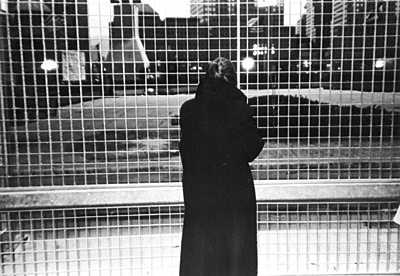All Nonfiction
- Bullying
- Books
- Academic
- Author Interviews
- Celebrity interviews
- College Articles
- College Essays
- Educator of the Year
- Heroes
- Interviews
- Memoir
- Personal Experience
- Sports
- Travel & Culture
All Opinions
- Bullying
- Current Events / Politics
- Discrimination
- Drugs / Alcohol / Smoking
- Entertainment / Celebrities
- Environment
- Love / Relationships
- Movies / Music / TV
- Pop Culture / Trends
- School / College
- Social Issues / Civics
- Spirituality / Religion
- Sports / Hobbies
All Hot Topics
- Bullying
- Community Service
- Environment
- Health
- Letters to the Editor
- Pride & Prejudice
- What Matters
- Back
Summer Guide
- Program Links
- Program Reviews
- Back
College Guide
- College Links
- College Reviews
- College Essays
- College Articles
- Back
The True Meaning of Home
House - a building for human habitation, especially one that is lived in by a family or small group of people.
Home - the place where one lives permanently, especially as a member of a family or household.
My humble abode is a place where I live and can feel safe. It’s a comfy place with all the basic necessities of life, food, water, clothing, shelter, and the fun things in life, My legos, movies, tvs, and computers. I’ve lived in three houses total in my life, and all of them I considered to be home at the time. My first home was in Baltimore, Maryland, where I lived for the first six years of my life. I considered it home mostly because I was a little kid and didn’t understand the concept of home, but it was also the first place I was able to call home. The house, average sized, roomy, welcoming, was warm and had plenty of space to run around in and play hide and seek. It had a big open backyard where I could play with my dog, Licorice, a black lab mix, and my friends. I remember one time when I was playing with my dog with my brother, and I was tossing her one of her toys, a squeaky kong, and my brother, Timothy, took it from me and threw it instead. I got mad at Timothy and tried to take to take it back so I could throw it myself , and my dog bit me, so blubbering, whimpering, 4 year-old me came inside and told my mom an exaggerated story of what happened, obviously making my brother the bad guy, and he got in trouble, exactly what I wanted. Home is where there are times of happiness and sadness and sibling rivalries, home isn’t perfect, but it’s perfect for me.
In Virginia I lived in a townhouse at Twin Gables in Harrisonburg. This was a midway point between moving from my old house to my new house. It was a small, cozy nook compacted in between the other houses at Twin Gables. I lived there for almost a year, but in just that little amount of time it was just what I needed it to be in the small time period, a place to live, but I did not consider it a home. It was not permanent, it was small, but cozy, but I had to share a room with my brothers. I had to share every part of the house with my family. The only place I could be alone was in the bathroom. The one thing that made more than just a house, was the neighbors. They were always so friendly even though I acted rudely. The one time I remember was when I finally met who owned the cat that always wandered around. The owner, a young female college grad, was living next door to us and little immature me asked, “Do you ever feed your cat, because we always have to feed it?” She of course thought that was adorable and simply said “yes of course I do” with a laugh. My parents on the other hand didn’t think that it was so adorable and punished me with a stern scolding and a lecture about what not to say to people, even though my brothers thought it was hilarious. The fact that the owner didn’t get mad at me proves (to me) that the neighbors really were nice and when you have friends and neighbors it makes a simple house feel a little more like home.
A few months after that I moved to my current house which I now consider to be home, but only in a few parts of it. My room where I sleep, my computer space upstairs, the kitchen and pantry, and the basement where my legos are, These are the places that I feel free to do whatever I want, but the other places to me are just there to fill up space. I always enjoy the kitchen during the holidays because of the sweet cinnamony aroma of my mom’s homemade cinnamon rolls.
I know I’ve always considered where I live home because, whenever I’m on a long trip and away from home, or I’m home sick, I always think those places and what I could be doing there instead of wasting my time away from it. Though I don’t live in my first or second house any more, I still consider them home, because they both were once a place of happiness, comfort, and meaning.

Similar Articles
JOIN THE DISCUSSION
This article has 0 comments.

I had to write about what home was to me for a class paper